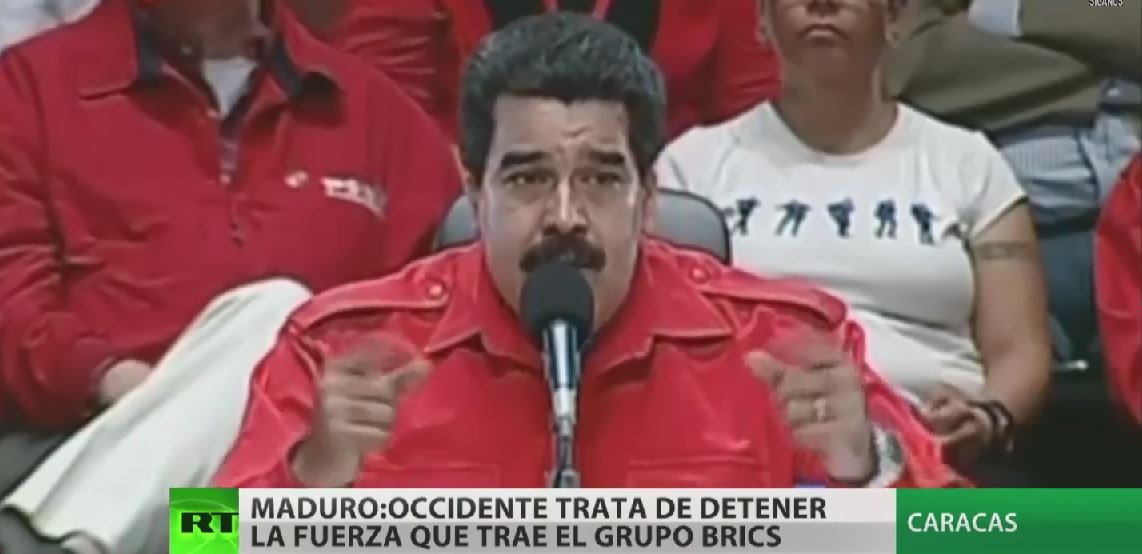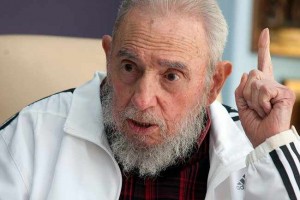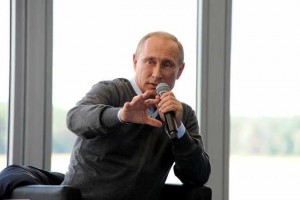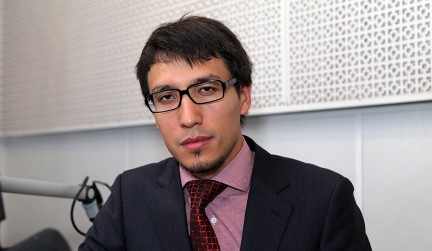
Russia buoyed by Latin American support
The Russian media are giving prime display to the statements given this week by Cuban revolutionary leader Fidel Castro and Venezuelan President Nicolás Maduro in support of Russia and against European sanctions against that country.
Dozens of newspapers and online news sites are publishing statements made by Maduro at a gathering Monday (Sept. 1) of the Socialist Party leadership in Caracas, where he accused the European countries that form NATO [the North Atlantic Treaty Organization] of “trying to surround Russia, to stop Russia. And by stopping Russia, they’re trying to affect the emergence of the new poles, the new powers of the multipolar world of the 21st Century and send a message to China.
“They’re trying to stop the emergence of the strength of the BRICS group,” he said, referring to the economic bloc formed by Brazil, Russia, India, China and South Africa. (For background, click here.)
“We here in Venezuela are very aware of this threat against Russia,” Maduro continued. “With a clear and independent voice, we demand to those who today accuse and besiege Russia to cease their attack against Russia, to stop looking for war against Russia.”

Alluding to President Vladimir Putin’s ban on food imports from the West in response to the European Union’s sanctions over the Crimean crisis, Maduro said that “when Russia defends itself, they [Europe and the United States] accuse Russia of having an aggressive policy toward the West.”
“Peace! Peace is what we want for the world, and respect for Russia,” the president said. “We know very well what we’re saying and when we say peace and respect for Russia we say respect for the people to grow, to exist in a world of equals.”
Writing in Granma on Sunday (Aug. 31), former Cuban President Fidel Castro decried the European Union’s attitude toward Russia and China, “two great nations that, inspired by the ideas of Marx, achieved the great feat of ending the imperialist colonial order imposed on the world by Europe and the United States.” (For Castro’s recent statements on Russia and China, click here.)
“Many are surprised to hear the statements made by some European NATO spokespeople, expressed in the style and look of the Nazi S.S.,” Castro wrote, alluding to the Schutzstaffel, Hitler’s paramilitary retinue.
The Cuban leader went on to say that the euro and the dollar “will soon become wet paper, and [the European countries] will be required to depend on the yen, and rubles as well, given the emerging Chinese economy, closely linked to Russias enormous economic and technical potential.” (For English translation of Castro’s article, click here.)

Several Latin American countries have agreed to supply Russia with food now that Moscow has banned imports from the European Union, the U.S., Canada, Australia and Norway for one year, prompting E.U. leaders to say that they will pressure those countries into rescinding their contracts with Moscow. (For details, click here.)
“It is strange to hear that our European colleagues are asking the Western and Latin American countries to not furnish Russia with foodstuffs,” commented President Vladimir Putin last Sunday (Aug. 31) during an interview with the Russian TV network Channel One.
“That’s simply ridiculous,” the president said. “It is difficult to imagine that the trade representatives [in those countries] won’t take advantage of this opportunity to access our market.” (For details on that burgeoning trade, click here and here.)
“We are now working with Brazil, Argentina, Chile and Asian partners such as China,” Putin said, adding that after the one-year ban, “it will be difficult, or almost impossible, to displace those exporters who consolidate within the Russian market.”
In July, Putin traveled to several Latin American countries where he signed bilateral accords that opened a new stage between them and Russia. The importance of that relationship was stressed last week by Russian Foreign Minister Sergei Lavrov at a public forum in the Russian city of Tver. (For details, click here and here.)

Dmitri Abzalov, president of Russia’s Center for Strategic Communications, was quoted Tuesday by the Interfax news agency as saying that “[we] can rely on Venezuela, Bolivia, Argentina, Colombia, and to some extent Brazil, Peru, Chile — in fact, quite a number of countries in South America, which could be very promising for Russia.”


